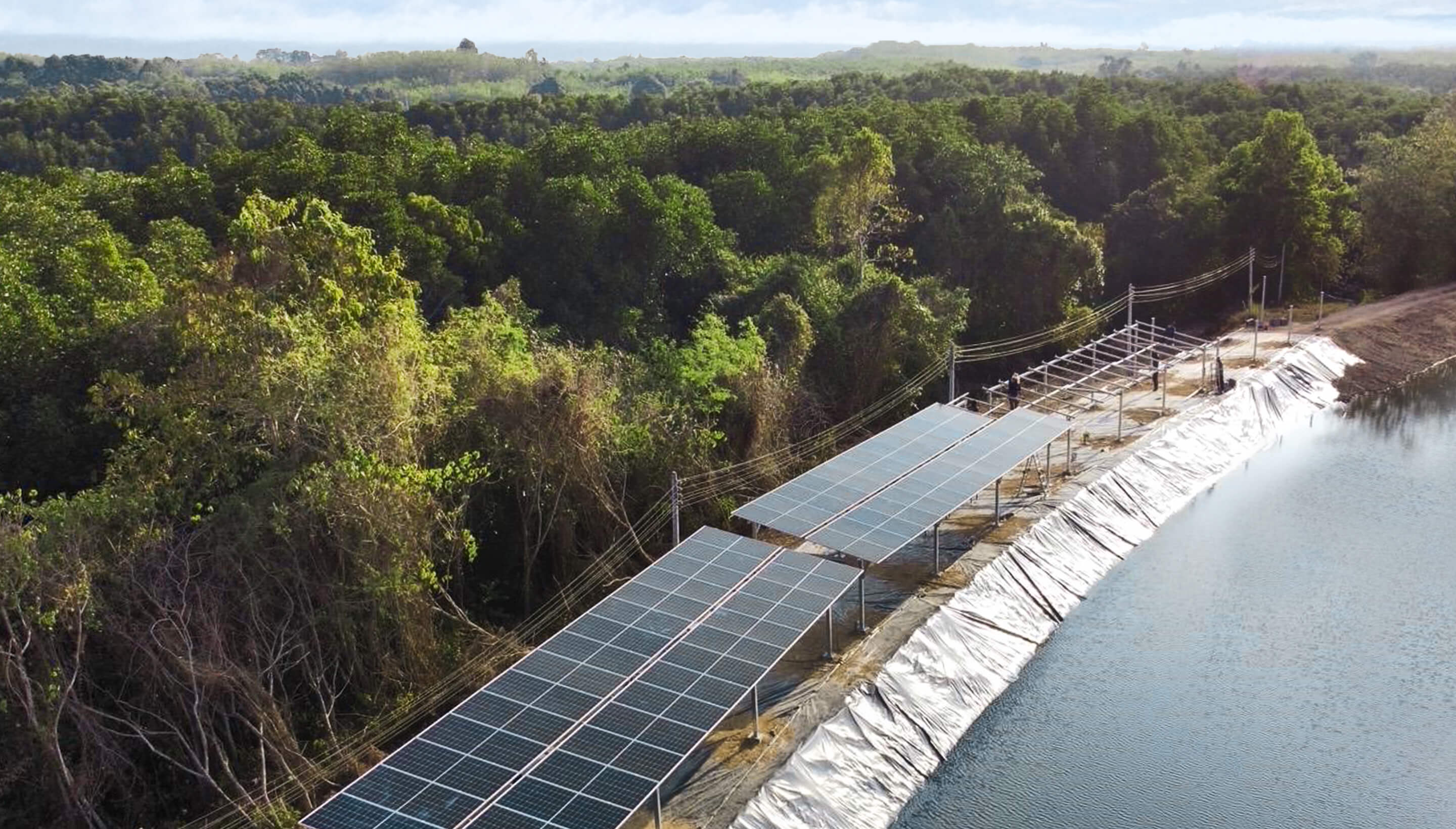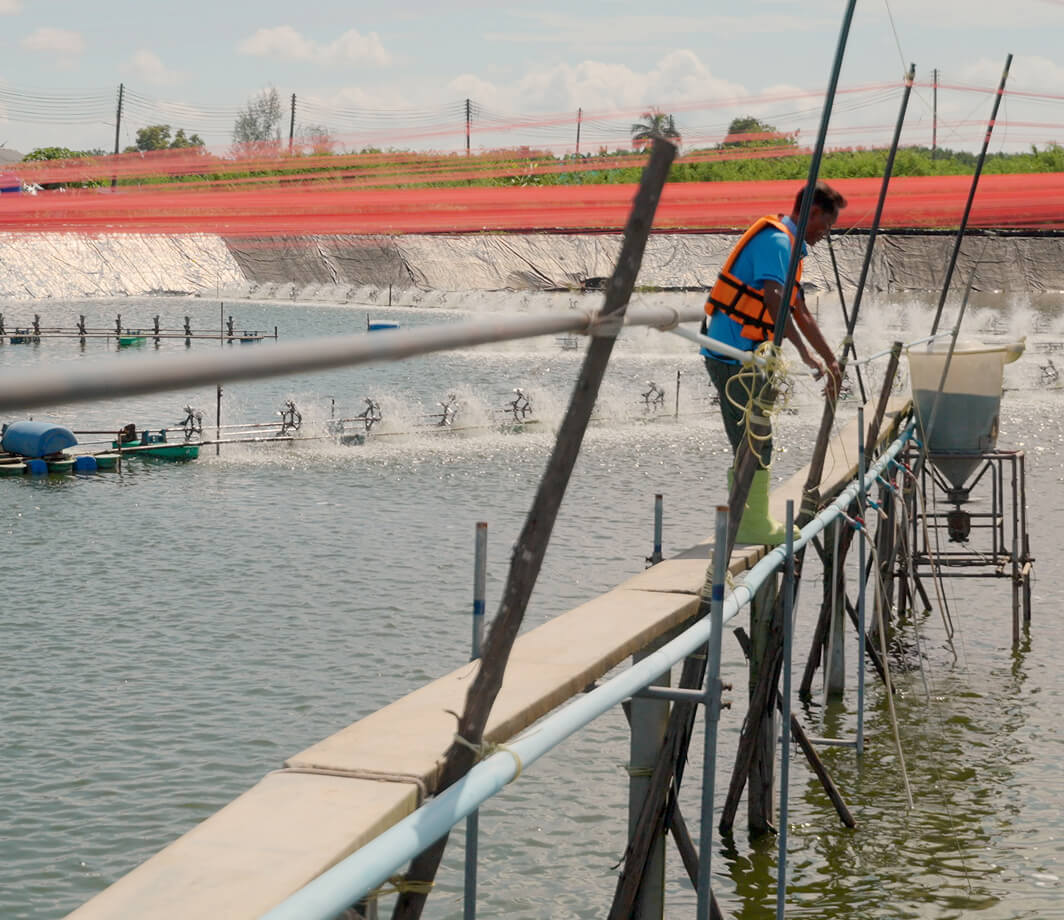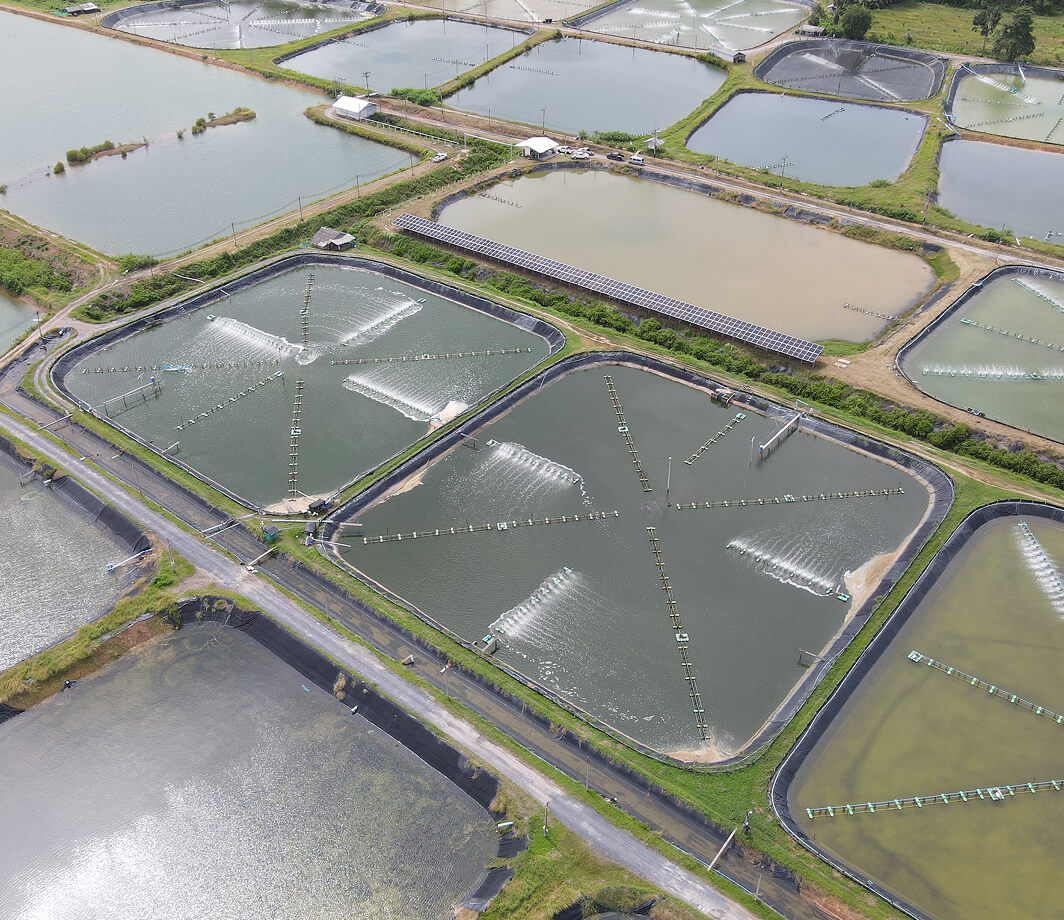A New Approach
to Low-Carbon Shrimp

Working to help mitigate the carbon impact of our supply chain and the products on our shelves.
While shrimp is America's favorite seafood, its farming can have a significant carbon footprint. That’s why the Whole Foods Market Sustainability and Seafood teams worked with Thai Union and Chicken of the Sea on a carbon-reduction pilot program that invests in shrimp farms to source more sustainable feed, deliver that feed more efficiently and install solar panels. The program also ensures shrimp feed is made with deforestation-free soy, meaning it’s not grown on land that
was recently forests, wetlands or other natural ecosystems, helping create a more sustainable seafood industry.


In addition to working to increase the energy efficiency of our stores, facilities and operations, we’re working with suppliers to help accelerate their carbon-reduction efforts and make continuous progress toward a lower-carbon footprint.
“Our approach to reducing carbon emissions extends well beyond our store operations and deep into our supply chain. We recognize that meaningful climate action requires collaboration with our suppliers, farmers and stakeholders across the food system to identify and implement innovative solutions for reducing greenhouse gas emissions at every step.”
Our Impact
Report
Read our 2024 Impact Report, which highlights all the ways we’re working to build a more sustainable, more equitable food system for generations to come.


